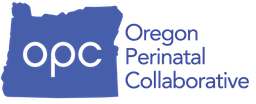August is National Breastfeeding Month
Breastfeeding is a high-impact intervention that offers benefits for children and birthing individuals. Breast milk provides essential building blocks for brain development as well as protection from infections and illness. In the 2022 CDC national survey of Maternity Practices in Infant Nutrition and Care, 87% of Oregon hospitals provided an “ideal response when asked if breastfeeding mothers are taught/shown how to position and latch their newborn, assess effective breastfeeding and hand-express milk.” Oregon received a subscore of 96 (the national average is 94) in the category of Feeding Education & Support. Furthermore, OHA reported WIC breastfeeding rates with 37% breastfeeding at least six months. One significant barrier to breastfeeding is the lack of paid parental leave. Oregon can celebrate a significant stride forward in addressing this barrier through the voter supported implementation of Paid Leave Oregon!
FDA Approves Oral Medication for Postpartum Depression
The U.S. FDA has approved Zurzuvae (zuranolone), the first oral medication for treating postpartum depression (PPD) in adults, a serious condition that often arises after childbirth. Previously, PPD treatment was limited to IV injections in specialized health care facilities.
“Throughout the U.S., there have been significant shortages of mental health care providers, including providers qualified to treat maternal mental health conditions,” said Joy Burkhard, executive director of the Policy Center for Maternal Mental Health, in a statement. “It is absolutely game-changing that the mother’s OB-GYN or midwife can now prescribe this new treatment without consulting or referring to a psychiatrist, and a mother is almost guaranteed to be well in two weeks.” The cost of treatment of Zurzuvae has not been released by its manufacturer, Sage Therapeutics and Biogen Inc., so it remains to be seen how accessible the treatment will be to patients.
Maine Provides Model for Perinatal Naloxone Access
Maine is working to expand access to naloxone for perinatal and postpartum patients through universal distribution of nasal naloxone to birthing people upon discharge, as they recently shared during an Alliance for Innovation on Maternal Health webinar.
The pilot project focuses on three main goals: reducing postpartum maternal mortality due to opioid overdose; combatting implicit bias in health care workers toward individuals affected by opioid use; and strengthening community-hospital relationships through collaboration with organizations focused on prevention.
Support was provided by discretionary grants from the Maine Health Access Foundation and the Bingham Program, and the State of Maine. Staff support by the Maine Medical Association Center For Quality Improvement and by in kind contributions from the Franklin Community Health Network Healthy Community Coalition.
One hundred ninety-seven postpartum people were discharged during the pilot project. One hundred ninety-two of 197 (97%) postpartum people received education from nursing staff on opioid overdose recognition and treatment. One hundred eighty-six of 197 (94%) postpartum people accepted the kits, and 150 of 197 (76%) also accepted the naloxone.
 |
| Our work is supported by cooperative agreement NU58DP006358, funded by the Centers for Disease Control and Prevention as well as funding from the Oregon Chapter of the March of Dimes. Additional in-kind donations have been made through Comagine Health, Oregon Health & Science University, and our generous volunteers. |




